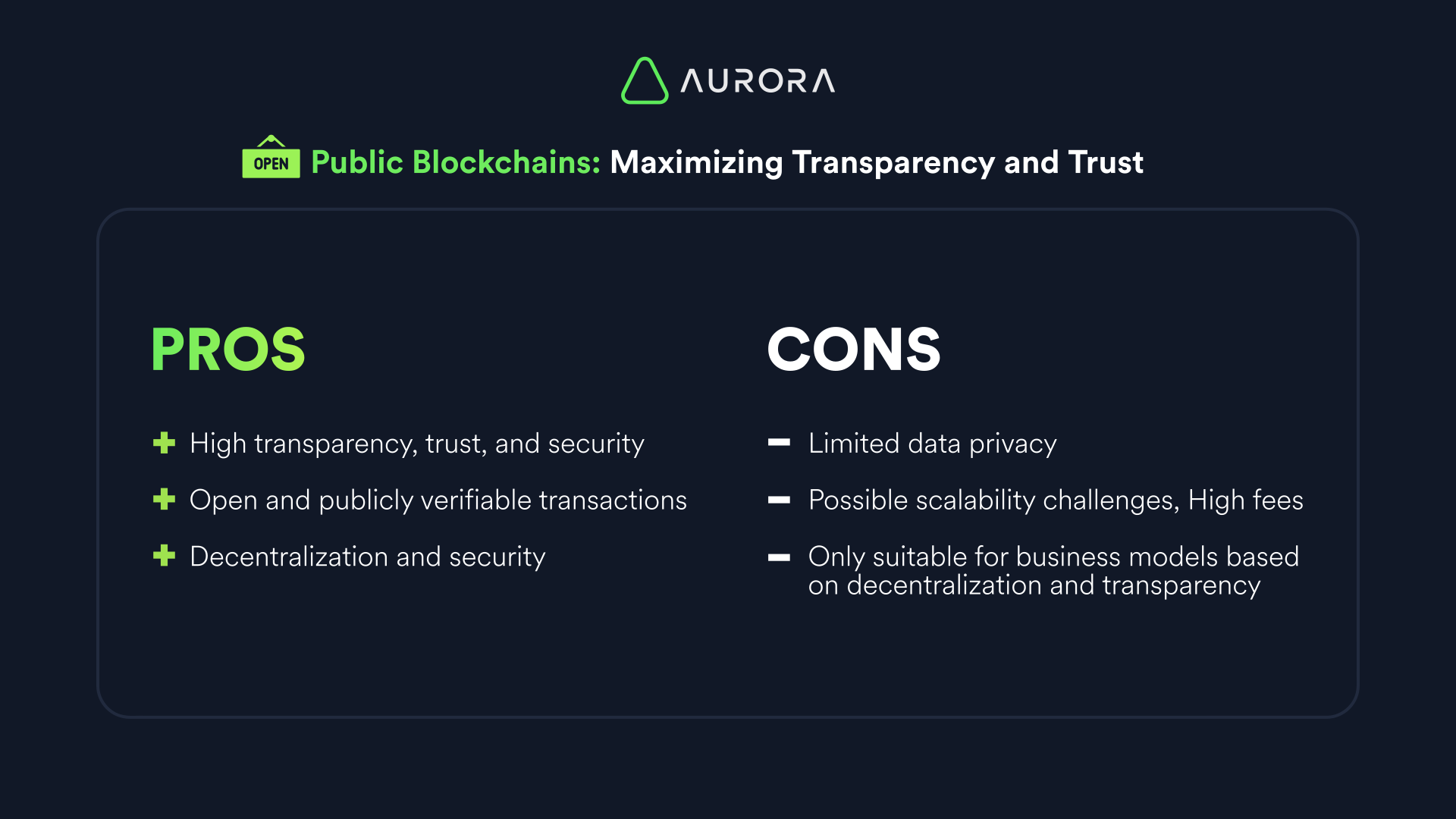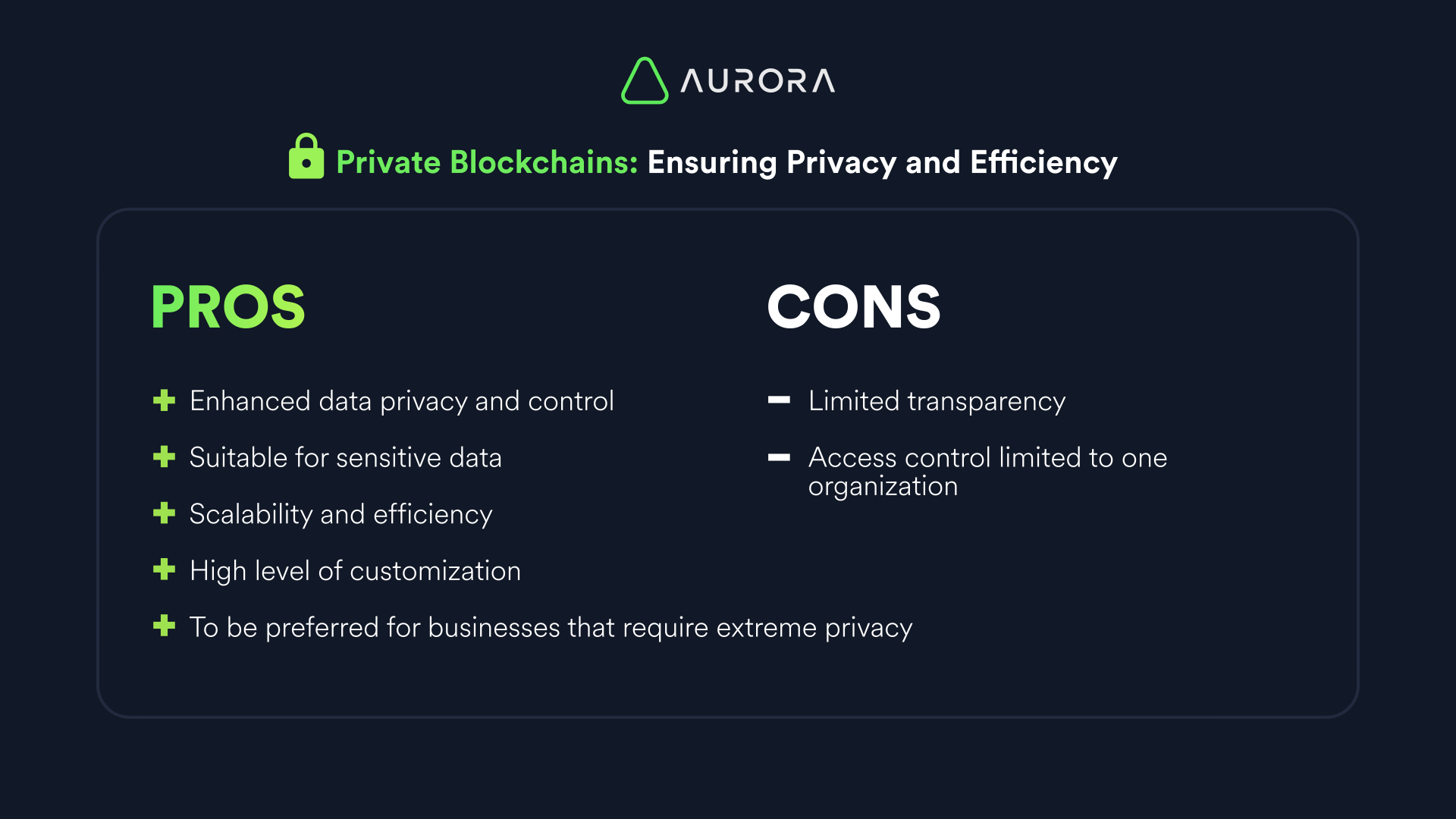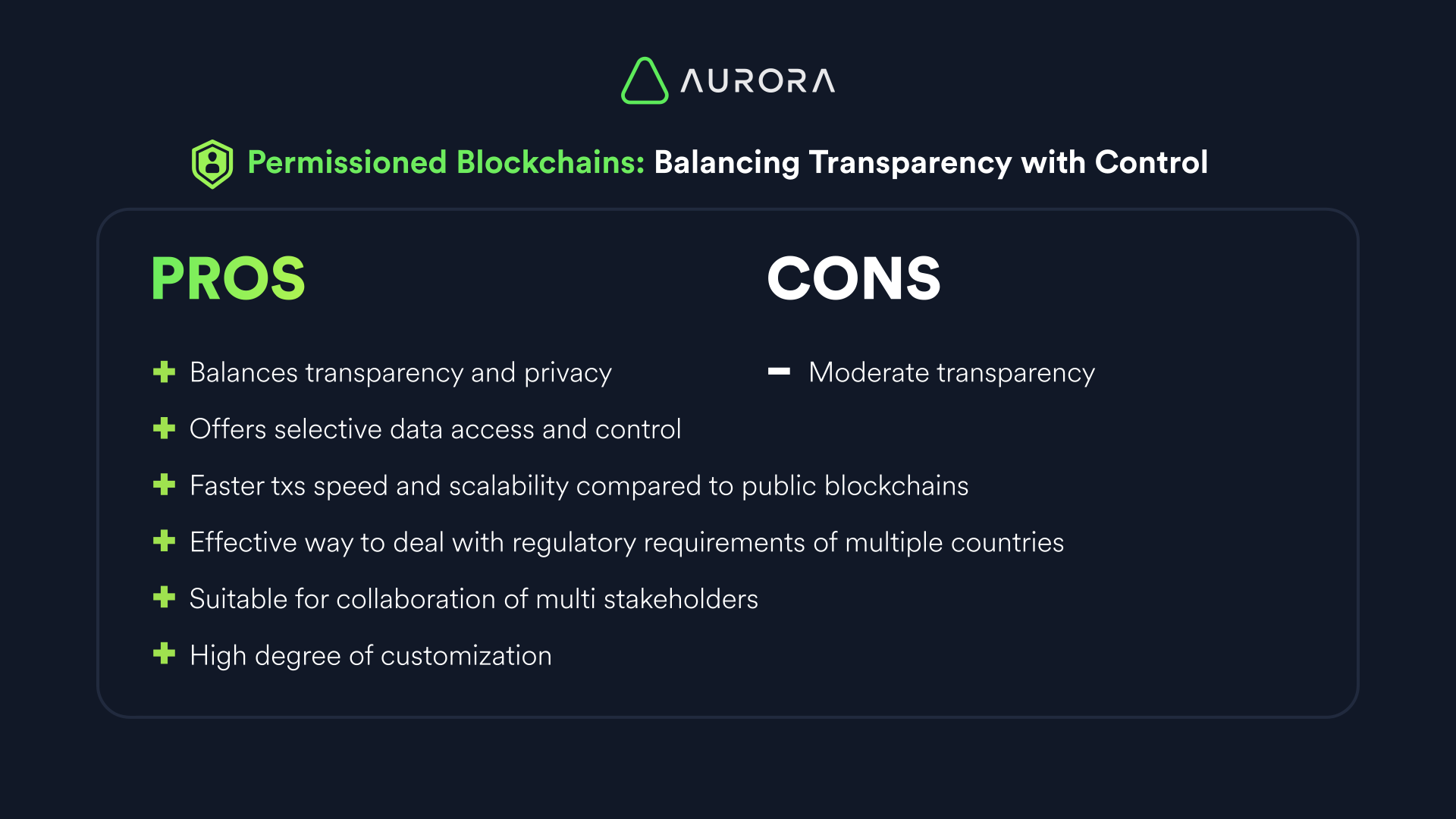Public, Private, and Permissioned Chains
A Simple Business Guide
In the ever-evolving landscape of blockchain technology, businesses are confronted with a critical decision: determining the most suitable blockchain type for their unique requirements. We're here to simplify the complexities and offer a straightforward exploration of public, private, and permissioned blockchains. No unnecessary jargon or technical complexities, just the essential information you need to make well-informed decisions regarding blockchain integration into your business operations.
Public Blockchains: Maximizing Transparency and Trust
Public blockchains, like Bitcoin and Ethereum, are the playgrounds of decentralized applications (DApps). They are open networks where anyone can join, transact, and participate in the network's consensus process. They are the foundation of trustless environments where transactions are publicly verifiable.
Traditional businesses tend to shy away from public blockchains due to concerns about scalability and privacy. However, when it comes to DApps in the fields of decentralized finance, gaming, decentralized social media, identity verification, public blockchains are a seamless match, as their business models are centered on the principles of full transparency and decentralization.
Ideal for: DApps aiming to enhance transparency and build trust with their users, especially in sectors such as DeFi, online gaming, social media, identity verification, and digital collectibles.
When it makes sense: Public blockchains are well-suited for business models that prioritize transparency and trust through decentralization. For example, in the gaming sector, DApps like "CryptoKitties" have gained popularity by using public blockchains to create, trade, and verify ownership of unique in-game assets, providing users with a secure and transparent gaming experience.

Private Blockchains: Ensuring Privacy and Efficiency
Private blockchains are restricted networks managed by a single organization or consortium. Unlike public blockchains, access to these networks is limited to authorized participants. They offer a controlled environment where privacy, speed, and efficiency are paramount.
Ideal for: Organizations that require control over their internal processes and data privacy, such as healthcare institutions, financial services, and proprietary research companies.
When it makes sense: This setup is ideal for businesses looking to protect critical information while capitalizing on blockchain's operational efficiencies. A prime example of this in action is the IBM Food Trust, which uses Hyperledger Fabric to track the food supply chain securely and efficiently from producers to consumers, enhancing both safety and traceability.

Permissioned Blockchains: Balancing Transparency with Control
Permissioned blockchains, closely related to private blockchains, prioritize controlled access and data privacy. However, what sets them apart is their unique balance between confidentiality and transparency. While private blockchains tend to be entirely closed, permissioned blockchains introduce a controlled level of openness, granting access to a specific group of participants for selected data and transactions. This nuanced approach makes permissioned blockchains the preferred choice for regulated industries and multi-stakeholder ecosystems that aim to maintain data control while offering limited transparency to trusted participants.
Ideal for: Enterprises that operate in regulated industries or require a balance between public transparency and private control, such as financial institutions, government agencies, and supply chain networks.
When it makes sense: When an organization’s operations involve multiple stakeholders with varying degrees of data access and privacy requirements. A notable implementation is we.trade, a trade finance platform developed by a consortium of banks using IBM's Blockchain Platform. It streamlines the trade finance process, offering efficiency, security, and trust, while ensuring compliance and data privacy.

How To Make a Decision?
The decision to adopt a public, private, or permissioned blockchain hinges on a business’s specific needs for transparency, data privacy, operational efficiency, and regulatory compliance. Here are some questions to help you identify your priorities:
- Does your business thrive on complete transparency?
- Do you want to encourage open participation from anyone?
- Are you operating in a sector where full transparency is a priority?
- Is safeguarding sensitive information a top priority for your business?
- Do you need to streamline and optimize internal processes?
- Are you focused on enhancing data privacy within your organization?
- Are you involved in collaborative environments with multiple stakeholders?
- Do you need to comply with regulatory requirements while maintaining control over data access?
If you are uncertain about the right blockchain choice for your business or have questions on integrating blockchain into your operations, don't hesitate to reach out to our team of experts. Be sure to subscribe to our channels for more valuable content on enterprise solutions and blockchain technology. We're here to support your journey towards making informed decisions!
About Aurora
Powered by its high-performance EVM, and fully trustless Rainbow Bridge, Aurora combines an Ethereum compatible experience with the modern blockchain performance of NEAR Protocol. Aurora provides an optimal environment for the creation of scalable, carbon-neutral, future-safe, and low-cost Web3 services, as well as the perfect tools to bring to life your Web3 initiatives. Try Aurora Cloud, our all-in-one blockchain solution for enterprises, and get your Web3 journey started!
